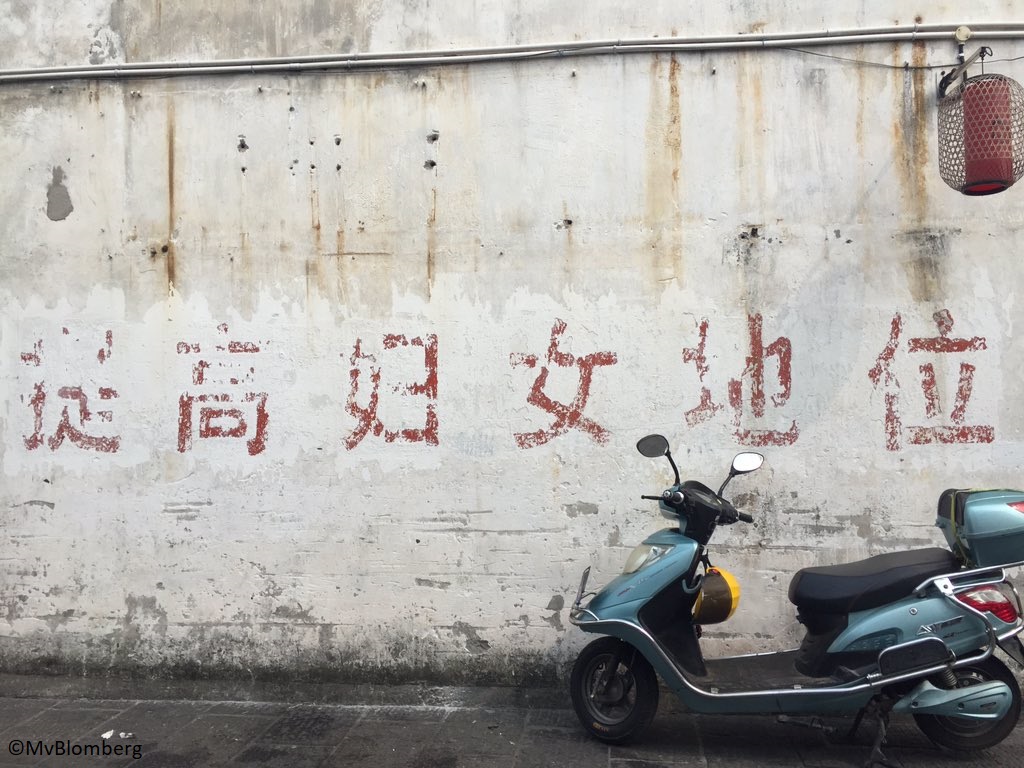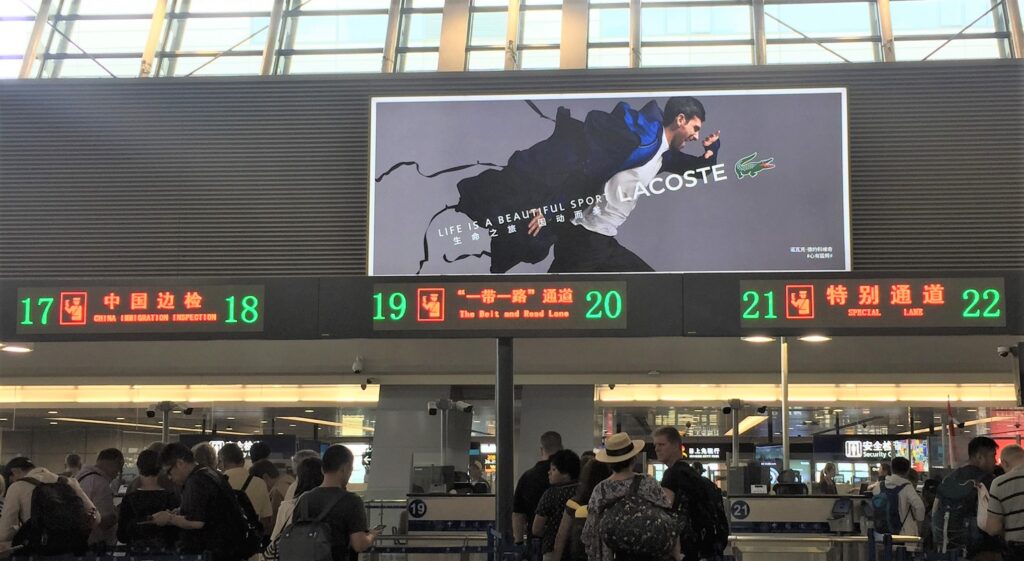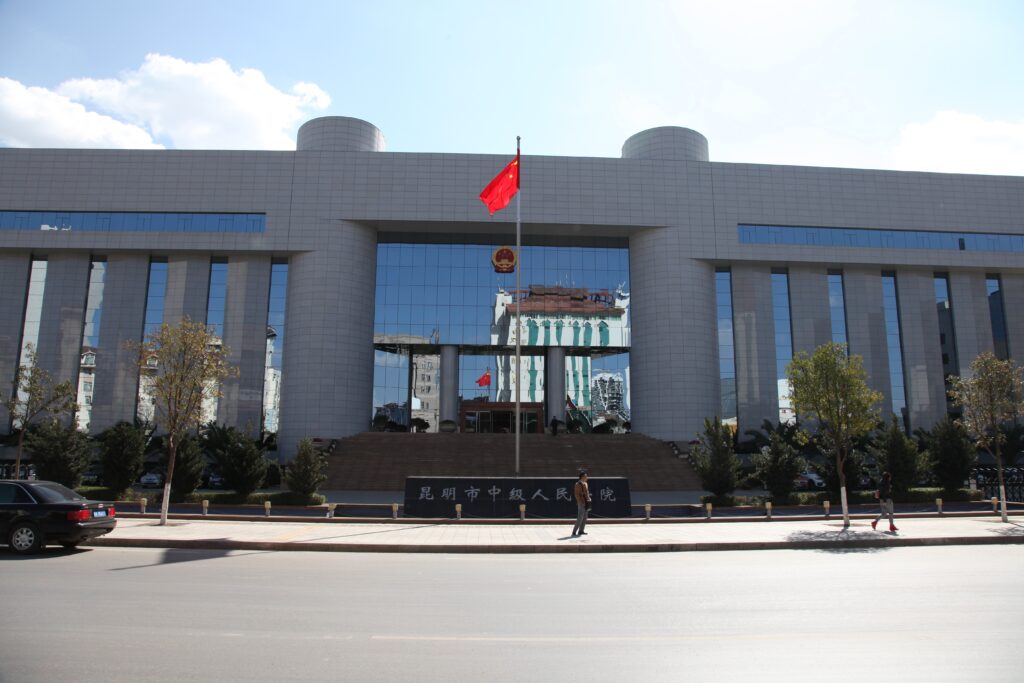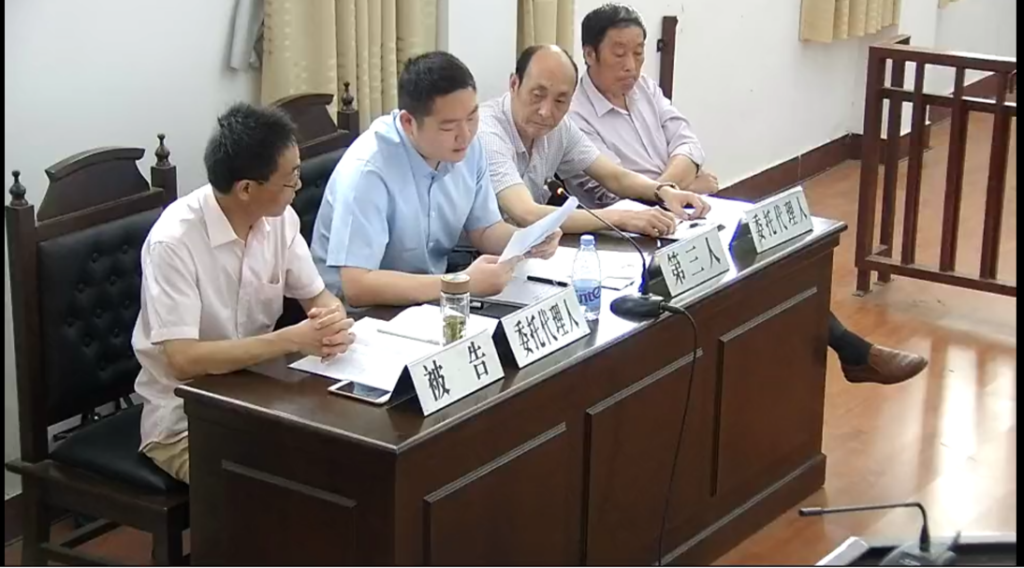A new paper by Wen Xiang and Junlin Peng

Litigation service halls of many courts in China have introduced robot guides who, equipped with knowledge on the court, legal consultation service, real-time query of case information, help reduce the service workload of staff.
In recent years, digitalization of courts has been explored actively in theory and practice in China. Mostly referring to “smart court” or “intelligent court”, the digitalization of courts means that litigation activities from case-filing, to court trials be carried out online, with the help of modern technology like big data, cloud computing and artificial intelligence. The effects of the COVID-19 pandemic further spurred the need to accelerate the digitalization of the administration of justice and streamline case handling within the sprawling court system in China. Junlin Peng and Wen Xiang ‘s latest paper in the Nordic Journal for Law and Social Research (available here) elaborates the opportunities and challenges associated with digitalization of courts and provides suggestions based on the analysis.
A large number of cases needs to be dealt with by a relatively small number of judges in China: With the rapid development of economy and a growing awareness of rights and obligations, people increasingly resort to law to solve their disputes. The notorious overload of cases and the lack of capacity inevitably affects the quality and efficiency of case-handling. Moreover, traditional ways of collecting, collating and delivering information undermine judicial efficiency. Therefore, the digitalization of courts is expected to contribute to the following: improving judicial efficiency, contributing to judicial transparency, providing convenient services and establishing judicial big data. However, challenges emerge. For instance, how to set the scope of application of technology? Do remote trials violate the Principle of Direct and Verbal Trial? How can electronic services ensure a fair procedure and the litigants’ right to know? This paper shows that some achievements have been made, but court digitalization is still in its infancy in China. It is a phenomenon where practice precedes law, which means there lacks of legislative support and legal theoretical research on informatization of courts. Technological innovations and the scope of their applications require further debate, or else will undermine the legitimacy of digital judiciary.
In particular, the following applications are observed:
Electronic case-filing
According to Article 14 of the Supreme People’s Court’s Rules on Several Issues on Case-filing Registration System, in order to facilitate litigants to exercise litigious rights, courts provide litigation services such as case-filing online systems. So far, many courts in China have actively explored and established an E-filing system, which enables clients to conveniently file a case online. The main concern about E-filing is false litigation. Judges have voiced their concern that they cannot verify the identification of parties and censor the authenticity of litigation materials, leading to an abuse of litigation rights.
Remote trial
Legislation on remote trial is limited. Article 259 of Judicial Interpretation of Civil Procedure Law of People’s Republic of China (hereinafter referred to as Interpretation of Civil Procedure Law) stipulates that for simplified procedures (简易程序), with the consent of both parties and permission of the People’s Court, the audiovisual transmission technology may be used to hold a court session. According to Article 73 of Civil Procedure Law, with the permission of the People’s Court, witnesses may testify through audiovisual transmission technology under the following circumstances: inability to attend court due to health reasons, traffic inconvenience, and force majeure such as natural disasters and other valid causes. However, there is no provision relevant to remote trial in Criminal Procedure Law.
At present, practices of remote trial across the country are pioneering endeavours with little legislative support and theoretical research. Practices of courts in various areas are diverse, we thus observe Jilin Province as an exampl: Jilin e-court is equipped with a cloud conference system which can be used for remote trial in case where litigants, witnesses and appraisers cannot go to the court. Before the beginning of the trial, the litigants are expected to log on to the website of Jilin e-court and enter into the cloud conference system at appointed time. The judge will initiate the cloud conference on the court intranet. There are no strict limits for the types of cases which remote trials may be used for. In practice, it is mainly applied in for simplified procedures (简易程序) and in first instance trials of ordinary and special procedures. In addition, there is no need for both parties to reach an agreement on whether or not to conduct the trial remotely; either party can apply for a remote trial. Thus, one party can participate in court trial through cloud conference system and the other party may go to the court to attend the trial in the traditional way.
Intelligent execution
In China, 80%-90% of the cases of judicial corruption appear in the field of execution, and 80%-90% of corruption in the field of execution appears in judicial auctions. If the parties waive the right to choose an auction agency, the court has the right to entrust one. Driven by high commission interest, the auction agency may distribute 40% of the commission to the judge in order to be entrusted by the court. Besides, the traditional way of judicial auction leads to a limited range of auction information dissemination, so that only a few people obtain auction information and participate. A small number of people participating in judicial auctions and a relative short auction time results in a low hammer price, which impairs the legitimate interests of the creditor and the executed person. In order to eliminate these drawbacks of traditional judicial auctions, courts in Shanghai, Chongqing and Zhejiang are actively exploring online judicial auction (E-auction).
E-auction refers to a model of judicial auction where courts can handle executable property publicly by means of online auction through an auction platform. Among the three models courts across the country experimented with, the model where courts carry out judicial auctions directly on an Internet auction platform without the participation of an auction agency is most widely used. Since June 2012, more than 1400 courts in 28 provinces have independently conducted judicial auctions online, carrying out 250,000 judicial auctions with the value of the executed property amounting to 150 billion RMB. According to Article 12 of Regulations on Judicial Auction Online, the judicial auction online should be announced in advance: the auction of movable property shall be announced 15 days before the auction and auction of immovable property shall be announced 30 days before the auction. To ensure bidders’ full participation in bidding, the Regulations of the Supreme People‘s Court on Issues Concerning Judicial Auction Online (Herein referred as Regulations on Judicial Auction Online) requires that the bidding time is no less than 24 hours. Judicial auction online not only lets more people participate in bidding but also furthers the transparency and justice of judicial auction. Article 3 of the Regulations on Judicial Auction Online stipulates that the judicial auction online should be open to the public on the Internet auction platform and be subject to social supervision. With the public being able to supervise the entire auction process online, doubts concerning the fairness of the auction can be eliminated to some extent.
Find the full paper here.
Wen Xiang (corresponding author) is an Assistant Professor and S.C.Van Fellow of Chinese Law at iCourts (Centre of Excellence for International Courts), Faculty of Law, University of Copenhagen. Wen Xiang was a guest lecturer at Harvard Kennedy School and a visiting scholar at Duke University School of Law. Contact him on LinkedIn.
Junlin Peng obtained a bachelor degree in law from Beijing Normal University and a master degree in law from University of Copenhagen. She attended summer school of Georgetown University and exchanged to University of Milan and University of Stockholm. Contact her at junlinpeng[at]163.com.












